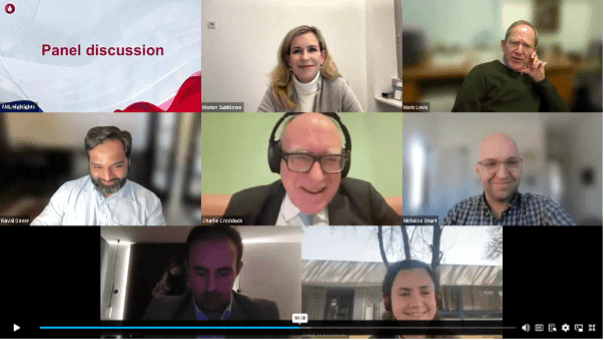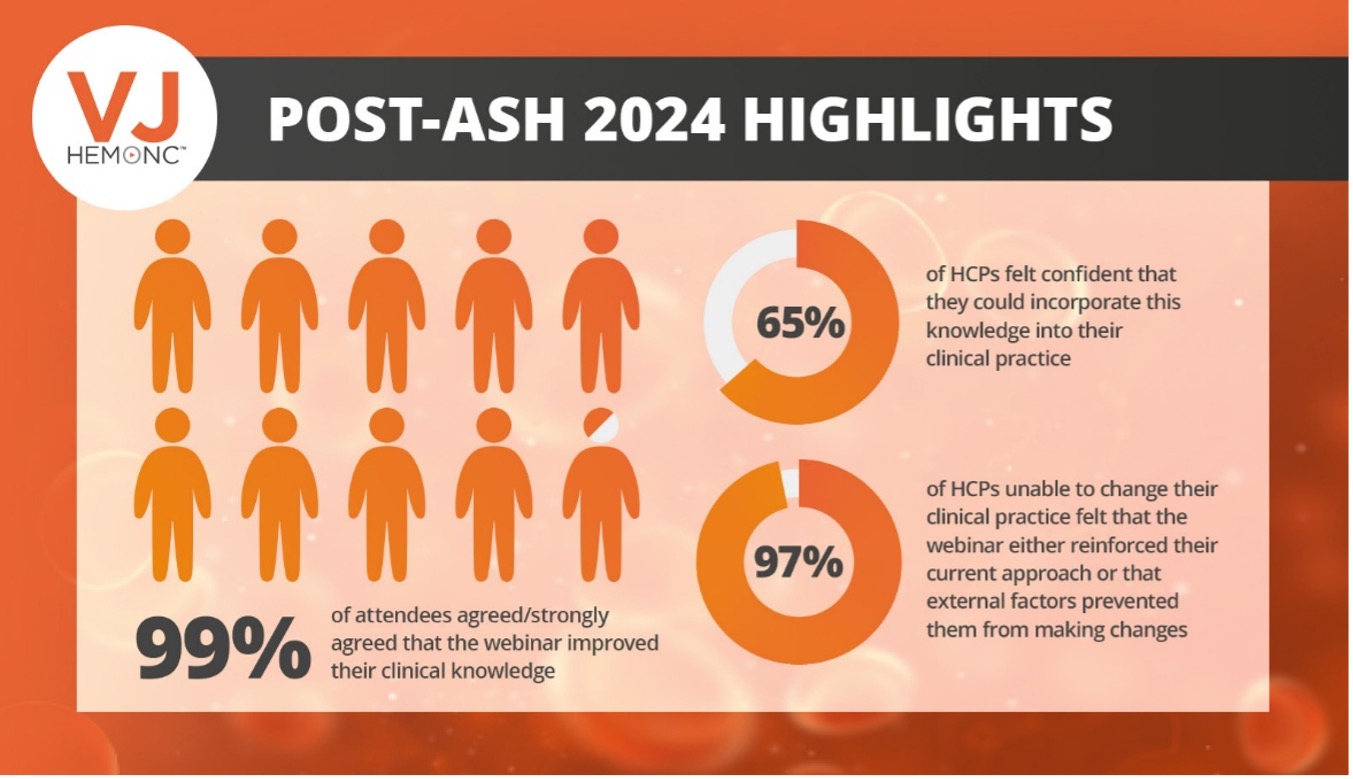Since 2021, Magdalen Scientific (events arm of Magdalen Medical Publishing) has produced an annual webinar series breaking down the vast amount of data presented at ASH into 2-hour virtual events focused on specific disease areas. Key opinion leaders from the VJHemOnc community identify their top abstracts, updates, and presentations for inclusion in the webinar, which are then grouped into sessions. For each abstract/publication, the lead authors are invited to give a short presentation summarizing the key data from their piece of work. After each session, there is then a dedicated panel discussion to provide valuable insights into the relevance of new data in clinical practice and to give participants the opportunity to engage directly with experts.
The Post-ASH Highlights Webinar Series has grown significantly since 2021, covering seven different disease areas for Post-ASH 2024 in its largest webinar series to date. With an average Net Promoter Score (NPS) of 63, this indicates that the Post-ASH 2024 Highlights Webinar Series achieved in the “great” range for attendee satisfaction.
The Post-ASH 2024 Webinar Series not only achieved highly in attendance and satisfaction, but in its educational impact as well. 99% of participants who responded to the post-webinar survey agreed or strongly agreed that the webinar improved their clinical knowledge (n=95). Of the HCPs that responded to the survey, 65% stated that they felt confident incorporating what they’d learned into their day-to-day clinical practice (n=83). 34% of HCP respondents stated that although they did not believe they could change their clinical practice, this was because the webinar reinforced their current practice or because of external factors such as policy issues, inadequate technology, or a lack of guidelines/expert consensus.



